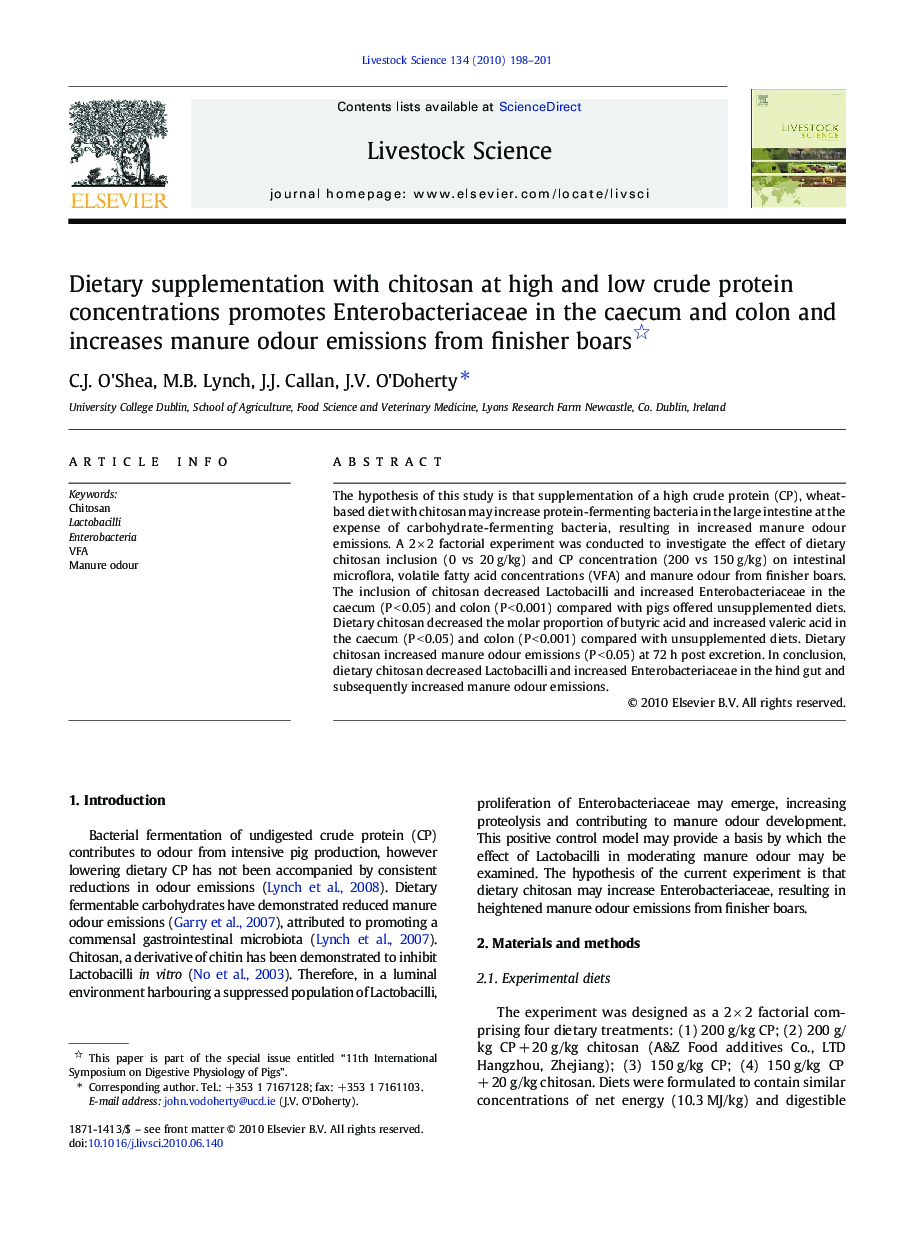| Article ID | Journal | Published Year | Pages | File Type |
|---|---|---|---|---|
| 2447632 | Livestock Science | 2010 | 4 Pages |
The hypothesis of this study is that supplementation of a high crude protein (CP), wheat-based diet with chitosan may increase protein-fermenting bacteria in the large intestine at the expense of carbohydrate-fermenting bacteria, resulting in increased manure odour emissions. A 2 × 2 factorial experiment was conducted to investigate the effect of dietary chitosan inclusion (0 vs 20 g/kg) and CP concentration (200 vs 150 g/kg) on intestinal microflora, volatile fatty acid concentrations (VFA) and manure odour from finisher boars. The inclusion of chitosan decreased Lactobacilli and increased Enterobacteriaceae in the caecum (P < 0.05) and colon (P < 0.001) compared with pigs offered unsupplemented diets. Dietary chitosan decreased the molar proportion of butyric acid and increased valeric acid in the caecum (P < 0.05) and colon (P < 0.001) compared with unsupplemented diets. Dietary chitosan increased manure odour emissions (P < 0.05) at 72 h post excretion. In conclusion, dietary chitosan decreased Lactobacilli and increased Enterobacteriaceae in the hind gut and subsequently increased manure odour emissions.
